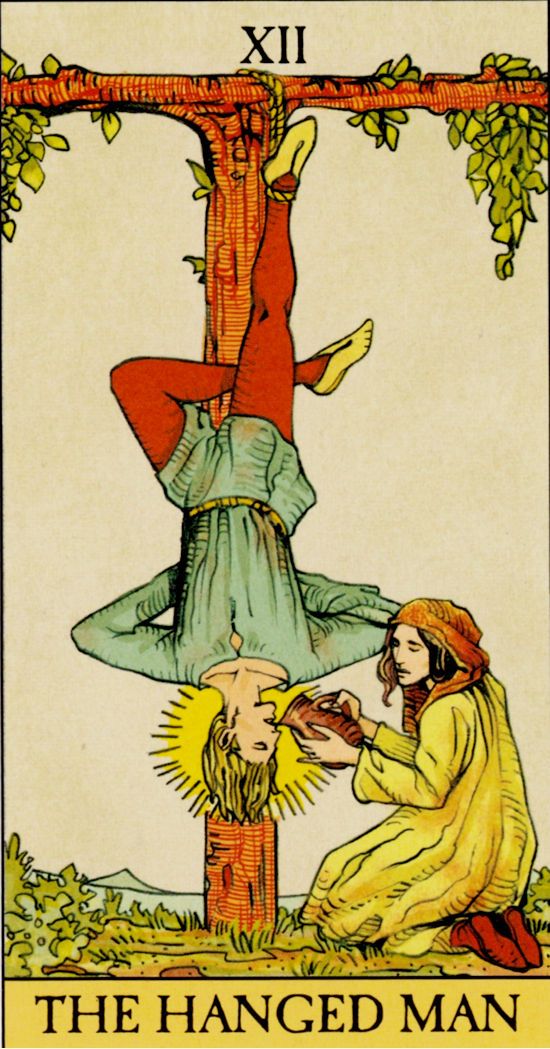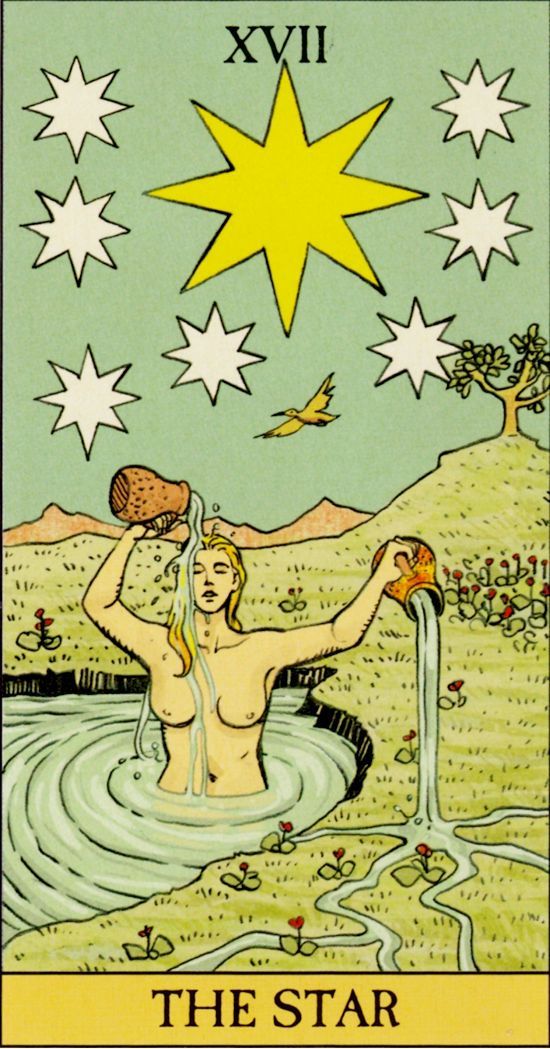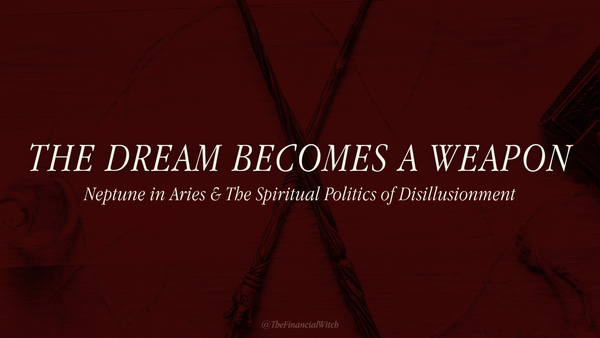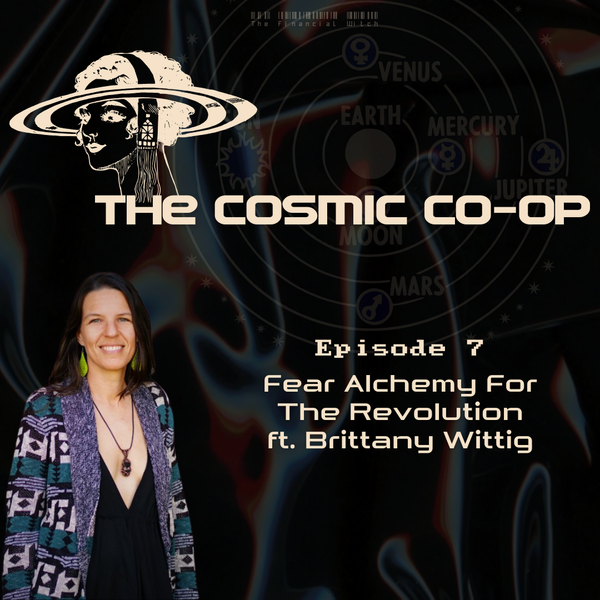The Hanged Man & Me
It’s not often I find myself relaxing. Even in an outward state of seeming ease, there is a constant and unforgiving vibration that never ceases. That thrum is the combined voltage of all the things I need to be doing, all the things I have done, the things I wish I had done when I had the chance, the things I wish I could be doing, the things that must be done in order to get other things done, and the things I wish I never did. Whew. Outward stillness is nothing more than a practice in lying to myself — a skill I’ve honed well — because on the inside there is nothing but constant movement.

What does inner stillness even feel like? Or look like? Does it have a sound or a smell? The only times I can remember truly being still are moments of complete freeze as I witnessed reality shifting around me unexpectedly. There is a certain freedom in chaos and crumbling structures, and to me that freedom manifests as a delusional sense of calm. I’m a builder by nature, as is the Capricorn way, so standing in the rubble of a reality recently held as truth isn’t so much of a shock anymore as it is a signal that it’s time to begin again. Yet again.
The Hanged Man has always appeared when I’m being called back into balance. I’m moving too quickly, or too slowly, or being too guarded, or too vulnerable, or I’m careening towards self-induced disaster without any plans to correct course. That’s when the Hanged Man shows up. The first time I remember receiving his cautionary messages, I wrote it down because it scared me: “If you don’t start listening to the universe, it will keep turning the volume up until it’s impossible for you to ignore.” I wasn’t deliberately ignoring the universe’s nudges and sly winks, but I knew I was out of balance. Living alone was not suiting me and my self-isolating tendencies. It gave me too much power, to be able to lock myself in a 300-square-foot fortress of solitude whenever I declared the world (and its inhabitants) too much to handle. Small responsibilities brought me to overwhelm, and large responsibilities were enough to freeze me completely. There is nothing quite like calling out of work for a week because you’re horribly ill with “food poisoning”— you know, the kind of food poisoning where all you can muster is staring at the ceiling for 5 days straight and smoking way too much weed in an attempt to forget yourself.
These visits from the Hanged Man made sense because I was the one derailing my life and I was the one who had to get it back on track. But what does it mean now, years later, in the midst of a time frame where none of us have been “on track” for months or years? The entire world is unbalanced, the whole planet is craving stillness and rest and not finding much of either. My biggest battle is not punishing myself for being unbalanced but instead creating softness for the parts of me that feel very scattered and separate from each other. So why does this card show up now?
Gold Nuggets is a reader-supported publication. To receive new posts and support my work, consider becoming a free or paid subscriber.
This time, it feels like an invitation instead of a redirection. My favorite thing about the After Tarot version of the Hanged Man is that he has a friend, offering him a drink as he hangs. Conjuring up images of the Star, this water-bearing friend screams Aquarius energy to me.

Here, the collective is considered even in the smallest tasks. The water-bearer is making sure the earth is hydrated as they douse themself, and some of that water is flowing back into the pool they drew from. Collective care, when done well, is a complete circle.
Lately I’ve seen a lot of discussion on the self/collective axis, and there’s been a sentiment circling that we may be prioritizing self-care incorrectly. More succinctly, we may be proselytizing self-care to people who don’t have the resources for it — it’s actually quite a privileged thing to be able to build healthy routines, pamper oneself, or partake in small periods of stillness. “Self-care” as a concept has also been tossed into the capitalism machine, which in turn churns out a mix of other issues that ultimately harm us, both individually and as a collective. We have acclimated to living in a manner that is so disconnected from the earth itself, and from each other. Self-interest is the backbone of this system because failure in capitalism means certain death. As Brigid Delaney put it, “While looking after yourself is great, self-care is still an idea rooted in a neoliberal tradition of looking out for ourselves, rather than seeing ourselves, our health and our fates as inextricably linked to our fellow human beings.” When we take care of each other, we are participating in a much larger ecosystem that, when tended properly, takes care of all of us.
Does this mean we should eschew taking care of ourselves for ourselves? Not at all, but when the collective is screaming for healing I think it can actually become easier for us to sink back into ourselves. It can be gut-wrenching to face the suffering of our fellow humans on such an unrelenting, overwhelming basis. I am a person who has, in the past, chosen to isolate myself in response to the unhappiness of those around me, not because I was offended or upset by it, but because I didn’t know how to help.
The Hanged Man is an invitation to turn towards the pain in others, not away from it, and I think it is also an invitation to learn how to accept being unbalanced. One paradox of life is that you will experience periods of feeling balanced and periods of feeling unbalanced, a seesaw which in itself is both balanced and unbalanced. Can you hold this paradox without despairing? Can you just hang out while the world is upside down? You can, when there is collective care. Can you sit with a friend and offer them some relief when they’ve been knocked off their feet? Can you trust that the care you receive is given freely and with love? Inner stillness is not a pipe dream but it requires sharing your tremors with those who have ample softness to spare.
Over time, I feel less and less like the Hanged Man is a messenger and more that he is something to aspire to. Uncertainty, scarcity, and tumult in my personal life and on a global scale have left me feeling like I was walking on air, and not in the good way. Strung upside down by circumstances outside of anyone’s control, I did not fare well without a foundation to stand on. I’ve always envied the way the Hanged Man is able to be so casual about his predicament. With the addition of a helping hand, however, he is still hanging — the friend has not cut him down but instead has offered him a drink. I don’t believe this is suggesting that he doesn’t want to be let down. Maybe his friend isn’t able to solve his problem for him, but they can offer some company and a respite from thirst. And despite being stuck in his situation for the foreseeable future, the Hanged Man is cared for and is able to find some ease. We cannot solve the perils of the entire world or our entire community, nor can we solve every problem for everyone we love, but we can start with our immediate circles and we can start with small acts of care. I want to emulate both the Hanged Man and his friend, completing the circle of community care as both the needy and the needed, because we all get to be both at different points in our lives. We get to be, because it is a privilege to care for others and it is your birthright to be cared for.




